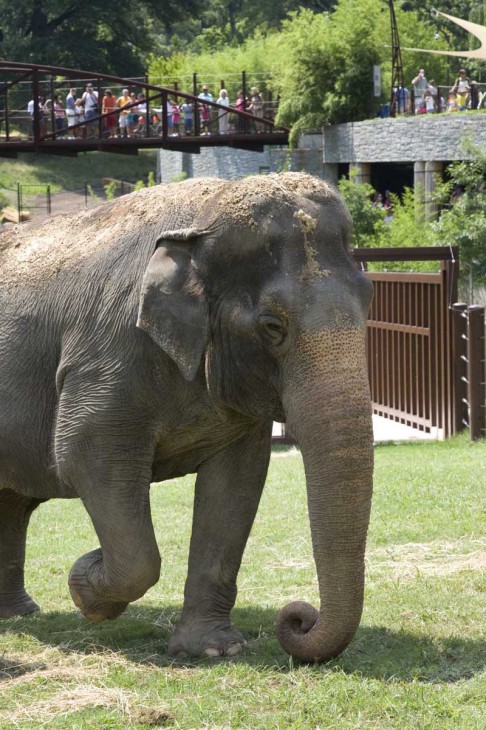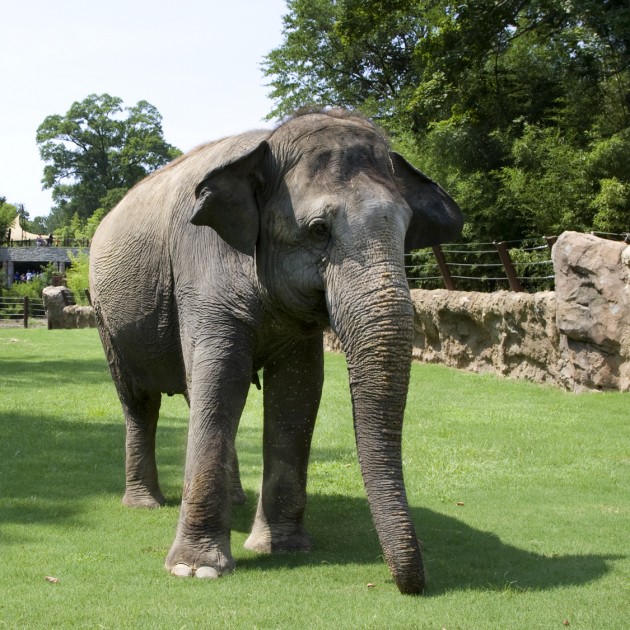The Smithsonian Conservation Biology Institute’s endocrinology laboratory is set to play a vital role in what will be the most comprehensive and collaborative study on elephant welfare in zoos—a project funded by the federal Institute of Museum and Library Services with the Honolulu Zoo serving as principal investigator.
The seven partners involved will use the $816,000 National Leadership grant from IMLS to collect and integrate a wide spectrum of behavioral, health and well-being measures of the nearly 290 Asian and African elephants in zoos accredited by the Association of Zoos and Aquariums.
The science-based study will evaluate elephant welfare along a quality continuum, assessing the impact of zoo management practices by looking at the elephants’ responses to differences in practices among zoos. When complete, the study will provide zoos around the world with information that will contribute to their ongoing efforts to ensure elephant well-being. The three-year study is scheduled to begin Dec. 1.
Using sophisticated computer modeling, researchers involved in the project will be able to take the extensive data they collect to establish benchmarks for the health, emotions and behaviors of elephants in zoos across the country. SCBI’s endocrinology lab will be looking at elephant blood, feces and saliva to provide a holistic picture of the health and welfare of the animals from a physiological standpoint. Specifically, the endocrinology lab will analyze samples to produce data related to body condition and nutritional status, metabolic activity and reproductive status, in addition to several hormones associated with stress.
The three Asian elephants at the National Zoo, Shanthi, Kandula and Ambika, will participate in the study.







